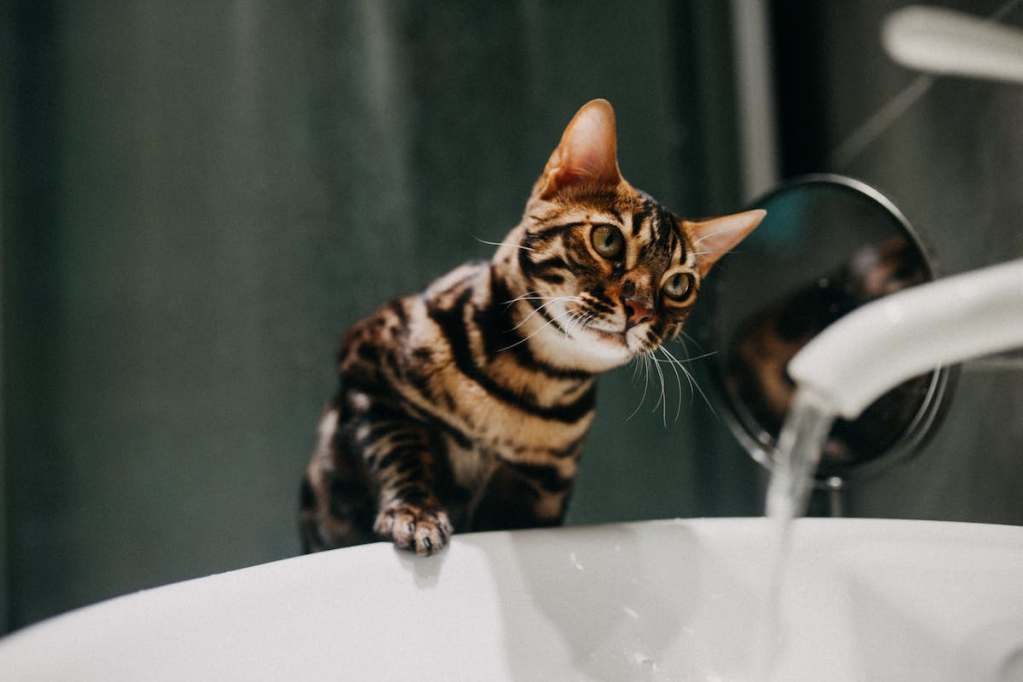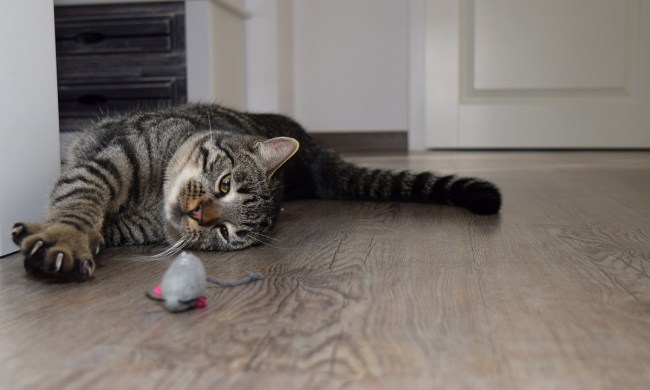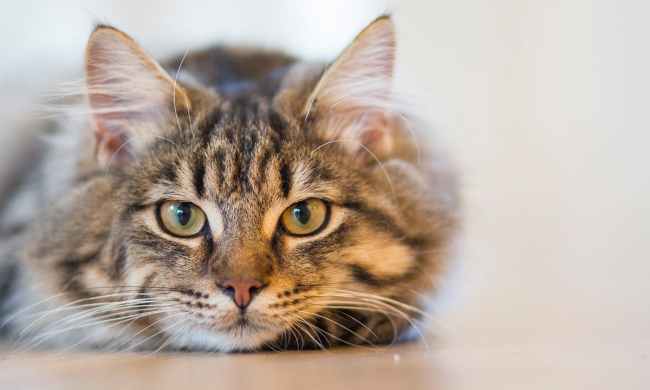Cats are well known for being bossy, aloof, and independent. They’re also famous for having a sworn enemy: water. That’s why it’s particularly funny to see kitties interact with the dreaded liquid, especially as it usually ends in hissing, running, and hiding. This little lady, however, has a different approach, and we get to watch as her endless curiosity about the sink blossoms into a hilarious encounter. It’s just another example of weird cat behavior that makes us enjoy our pets so much.
@marcelinethecatqu33n She gets weirder ever day ? #cat #kittensoftiktok #hemmingwaycat #animalsoftiktok #funny #cute #cutecats #fyp
♬ Monkeys Spinning Monkeys – Kevin MacLeod & Kevin The Monkey
The video takes a few watchings cause there’s a blink and you’ll miss it intro of the tub filling with water. Then we pan to our beloved star, the cat. Captioned “She gets weirder every day,” it follows the black and white feline as she stands on her hind legs and walks around trying to get a better look into the tub, possibly studying the water. Finally, she approaches and determines that this isn’t what she signed up for. The clip ends with the cat backing away and then scampering from the room. But don’t worry, she turns at the final second to give one last look.
The top comment tried to get into this pretty kitty’s head with, “She wants to save you, but that’s a lot of water.” We agree, Circe’s Protégé, no cat could be expected to brave a running sink.
Other commenters praised the starlet for what was deemed “the meerkat stance.” blackkeye wrote the animal’s inner monologue: “It’s not stopping, the water isn’t stopping. Time to evacuate!!!” She certainly makes a run for it at the end but sticks around to make sure the humans will be OK.
Lastly, russian_lil_mami said what we were really all thinking: “Cats’ paws look like mittens.” Yup, that tracks.

Why do cats hate water?
The truth is, not all cats hate water, and you may stumble upon the occasional mouser who even enjoys a good bath or swim. But most cats truly despise getting wet, in part because their coats take so long to dry. A soaked kitty will feel really uncomfortable when their fur gets heavy from the extra liquid and can struggle to stay warm. When a cat falls into a tub or pool, they also deal with the shock of wet and often cold that comes with it. You probably wouldn’t enjoy being unsuspectingly dunked, either. One other theory: domestic cats hail from the Ancient Middle East, including Egypt. They may have evolved in dry, desert-like climates and so are naturally waterphobic.
Regardless of the real reason, it’s best to keep your cat away from water as much as possible. If they do get wet or you find that your kitty needs a bath, be sure to crank the heat and find some good towels for drying so they don’t feel too heavy afterward. Unless your pet decides to check out the sink or tub herself, try your best to keep your feline away from her nemesis.



